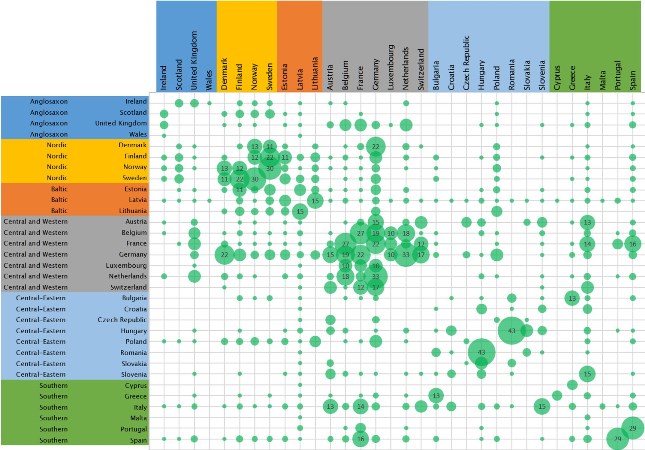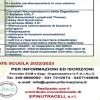 Share on Facebook
Share on Facebook
The Study "Cross-border cooperation: capitalising on existing initiatives for cooperation in cross-border regions" published by the Commission today//info%40cybermed%2Eit@mail.mabnet.it:143/fetch%3EUID%3E.INBOX%3E10602#1">[1] maps EU-funded cooperation projects for the period 2007 to 2017 in EU and EEA countries and Switzerland; provides insight into opportunities and challenges for cross-border cooperation in healthcare; and offers guidance to local and regional authorities and other parties who are interested in starting a health-related cooperation project. The Study's findings will provide input into the report on the operation of the Cross-border Healthcare (CBHC) Directive due to be published later in the year.
For the purpose of the Study, cross-border projects were identified using online databases and then clustered into the following categories: health workforce and training, emergency care, high-cost capital investment, knowledge production, sharing and management and treatment & diagnostics. Based on the new knowledge acquired, the contractor developed a practical guide and toolkit, and put forward the following 7 key lessons for those interested in starting a health-related cooperation project:
- CBHC initiatives are more effective in regions where ease of cooperation is already established, e.g. due to similar welfare traditions or close historical ties.
- Support should be given to key players such as regional policy-makers or hospital managers to reduce transaction costs of CBHC. The practical guide and toolkit developed in this study can provide a helping hand.
- There are several scenarios for future CBHC, one of the most realistic ones being one which builds regional networks oriented towards addressing local and regional needs.
- Regional networks are likely to represent a low-cost option, but the downsides are that they are likely to remain small-scale and they may create inequities by not benefiting all regions equally.
- Top categories of CBHC initiatives to receive EU-funding over the past 10 years are 1) knowledge sharing and management, and 2) shared treatment & diagnosis of patients.
- Collaborations such as high-cost capital investments and emergency care tend to have more discernible economic and social benefits, but require more formalised terms of cooperation.
- Although information on the effectiveness and sustainability of current CBHC initiatives is scarce, funding of CBHC projects could help achieve these aims.
Another way of representing collaboration in healthcare across borders in Europe is by providing a geographically ordered matrix of countries (figure 1). The vast majority of collaboration initiatives take place within geographical regions, most prominently in Central and Western European countries. In addition, Baltic and Nordic countries collaborate closely within and across regions. In Central and Eastern European countries, cross-border cooperation initiatives involve a small set of countries (particularly Hungary and Romania).
Figure 1: Matrix of collaborating countries ordered by geographical region

Cross-border territories: facts & figures
- Cross-border territories represent 40% of the territory of the EU
- More than 1 European in 3 lives in a border region
- There are 2 million cross-border workers in the EU, of which over 20% live in France
- There are 37 extended cross-border urban areas in Europe, 11 of which are on France’s borders
More information:
- Read the report in full
- Glance at the Guide for cooperation
- Take a look at the Inventory of initiatives
- Boosting EU Border Regions Platform
- CESCI cooperation
- Transfrontier operational mission
[1] The study was carried out by the Austrian Public Health Institute Gesundheit Österreich Forschungs and Planungs GmbH, with funding from the Health Programme 2014-2020.



